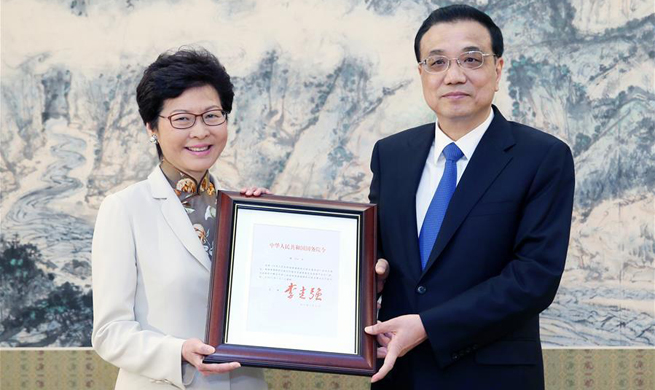WASHINGTON, April 11 (Xinhua) -- The United States needs to establish a new independent group to help tackle research misconduct and other practices that damage the research enterprise, according to a report released Tuesday by the U.S. National Academies of Sciences, Engineering and Medicine.
"Today, there is no (U.S.) organization with a mandate to foster research integrity across disciplines and sectors," Robert Nerem, chair of the committee that wrote the report, and professor at Georgia Institute of Technology, told reporters at a news briefing.
"We think the establishment of the Research Integrity Advisory Board (RIAB) as an independent, nonprofit organization, supported by dues-paid members, could be a vehicle to foster ongoing discussions of proactive approaches ... to foster research integrity."
The 285-page report, titled Fostering Integrity in Research, urged the entire research community, including public and private research sponsors, regulators, research institutions, scientific societies and publishers, to come together to launch, operate and fund the advisory board.
The proposed RIAB, it said, would serve as "a neutral resource" that could provide advice, support and encouragement to help the research enterprise respond to challenges. However, the RIAB itself would "have no direct role in investigations, regulation, or accreditation."
The establishment of RIAB was one of the nearly one dozen recommendations made by the committee led by Nerem, which endorses the current U.S. definition of scientific misconduct as "fabrication, falsification, or plagiarism."
However, it asserted that many practices categorized as "questionable" research practices, for example, misleading use of statistics that falls short of falsification and failure to retain research data, should be more clearly described as "detrimental" research practices.
The report also highlighted new forms of "detrimental" research practices, such as predatory journals that do little or no editorial review or quality control of papers while charging authors substantial fees.
Other recommendations proposed by the report included an update of practices and policies by all stakeholders in the scientific research enterprise, steps to protect good faith whistleblowers, a formulation of clear disciplinary authorship standards by scientific societies and journals, an active engagement by senior leaders at each institution in these tasks, and so on.
"It is clear that the research enterprise faces new and complex challenges in fostering integrity and in dealing with the consequences of research misconduct and detrimental research practices," Nerem wrote in the report, citing increases in the number and percentage of research articles that are retracted and low rates of reproducibility in some research fields as examples.
"It is necessary for all of us involved in performing, managing, funding, and communicating research to commit to improving practices in our own organizations and disciplines as well as more broadly."

















